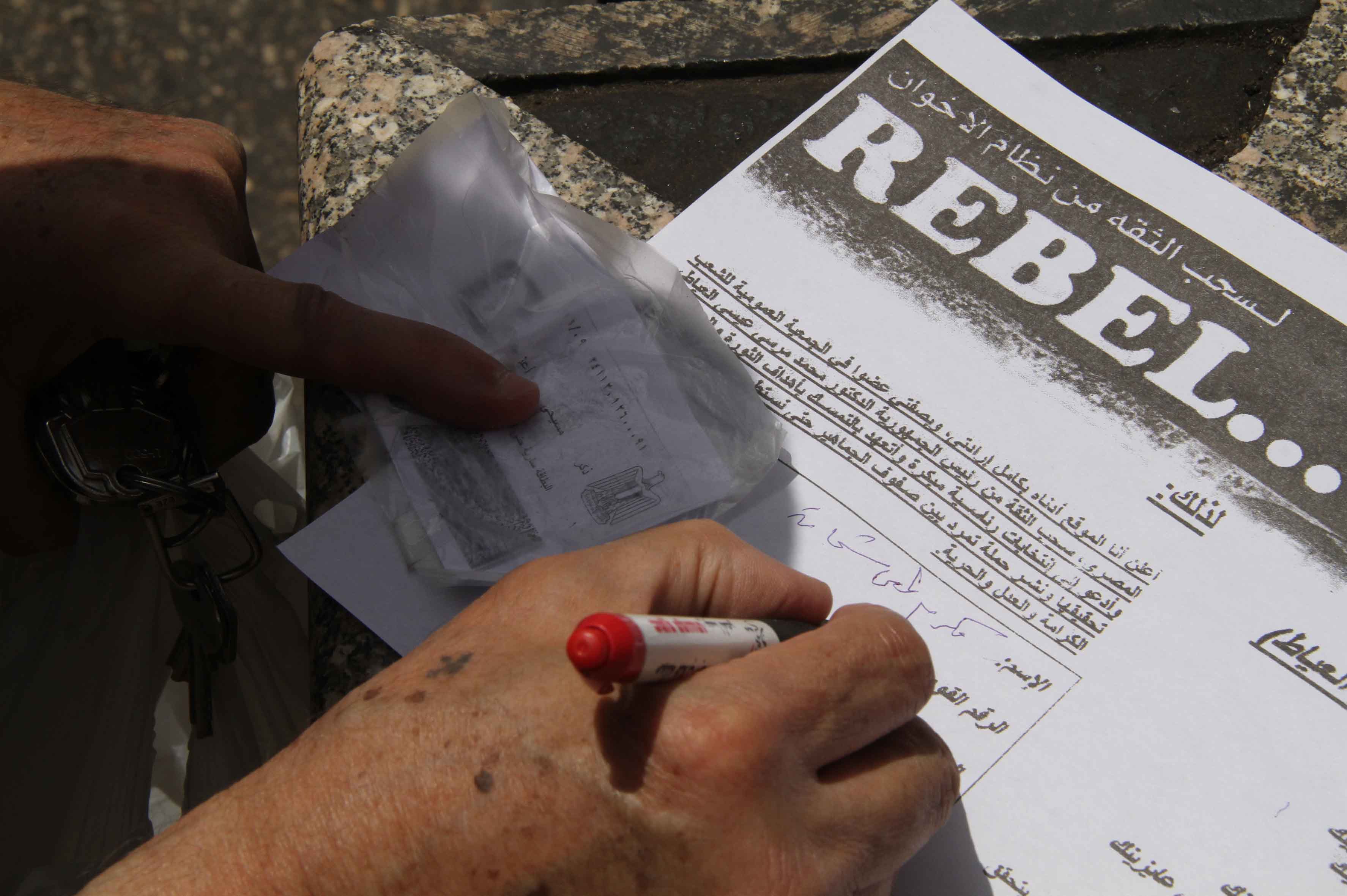CAIRO: Egypt’s newly elected lawmakers took aim at the country’s military rulers Tuesday, accusing them of trampling on democratic norms and overstepping their powers by passing laws, including a crucial one regulating presidential elections.
Led by the Islamist Muslim Brotherhood movement, the parliament is the first elected since the fall of President Hosni Mubarak last February. It is eager to assert its authority in the face of the powerful military council that took power after Mubarak’s fall and is in charge of managing the country’s transition to civilian rule.
Lawmaker Mohamed El-Beltagi, a member of the Brotherhood’s Freedom and Justice Party, called the generals’ decision to unilaterally pass the election law politically "unjustified" and said parliament must make clear that it is the country’s sole legislative power.
"Let it be a clear message to the Egyptian street that the parliament has become the only and unchallenged legislative authority," El-Beltagi told lawmakers. He asked parliament to review the law and amend it or refuse it as it sees fit.
The law in question, issued by ruling Supreme Council of the Armed Forces, sets out the rules for presidential elections expected later this year. The military rulers published it in the official Gazette on Jan. 19 — days before the parliament convened.
In parliament’s first working session, the lawmakers also had the chance to question the country’s military-appointed prime minister about his government’s handling of a number of sensitive issues. Among those matters were the trials of former regime officials, including ousted President Hosni Mubarak, and top security officials charged with the killing of hundreds of protesters during the popular uprising last year.
The tension between parliament and the ruling generals began well before elections even came to a close. The military, which essentially rules by decree, has on several occasions made contradictory statements about the extent of authority it would allow a legislature one general described as "not representative."
By passing the law on presidential elections on its own, the military sparked criticism that it was overstepping its powers and bypassing parliament to avoid lengthy debates about how to organize the critical vote.
Liberal lawmaker Amr Hamzawy called the military’s move "a clear violation of democratic traditions," and urged parliament "to seriously consider setting early dates for presidential elections to end this monopolizing" of decision making.
The youth groups that led the anti-Mubarak uprising have also sought to ratchet up the pressure on parliament.
On Tuesday, several hundred protesters rallied outside parliament, calling on lawmakers to press the military rulers to hold speedier and fair trials for former regime officials and settle retribution claims by the families of those killed during protests.
The youth groups, who distrust the military and accuse it of mismanaging the transition, also are pushing parliament to press the military rulers to step down immediately. They say that as the country’s only elected authority after the uprising, the parliament could either select a temporary president until a constitution is written or press for earlier elections which lawmakers could oversee.
Those proposals, however, appears unlikely to win support in parliament. Many members of the Muslim Brotherhood have indicated that they’re happy with the military’s current timetable, which calls for both a constitution to be written and presidential elections to be held by the end of June.
An advisory body to the military has been drawing up proposals for the military that include holding presidential elections a month earlier.
Mohamed el-Kholy, a member of the advisory panel, said Tuesday the proposals have been submitted to the military council. He said they suggest moving up the presidential elections, but not ending the military’s management of the transitional period before the end of June.

